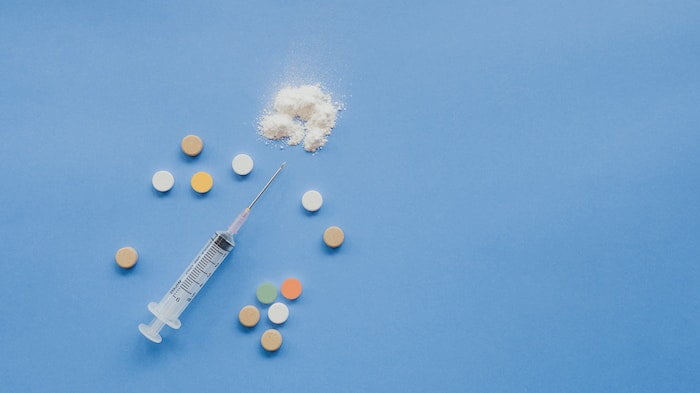Drug & Alcohol Rehab in Walthamstow
Situated in the northernmost extremities of London, Walthamstow has nonetheless been plagued by the addiction-related problems facing our capital city.
While criminal activity has decreased generally in Walthamstow, numerous reports show that drug-related crime has almost doubled since 2012.
Not only can drug crimes reflect a SUD victim’s need for help, but they also cultivate an unsafe feeling in communities. One report from the parliamentary archives stated that Waltham Forest recorded 1,768 instances of a crime involving drugs in 2021.
Many of these offences involved the possession of illicit drugs: making Walthamstow an area of concern when it comes to substance misuse.
This in addition to rising levels of substance addiction has created a concerning situation for the London borough. The Office for National Statistics figures has charted a rise in alcohol-related deaths in the Waltham Forest locale since the pandemic.
In 2021, London recorded 793 deaths due to alcohol-specific causes: a significant increase from 579 deaths in 2019. Overall, this means that around 10 people in every 100,000 died due to alcohol between 2020-2021.
While these statistics make it clear that many addicted people slip through the net, many have also been accessing treatment at a drug and alcohol rehab in Walthamstow.
A government report recorded that in 2021, there were 490 people receiving treatment for opiate addictions, and a further 390 had come forward for alcohol addiction treatment.
What is Drug and Alcohol Addiction?

Over the years, conversations in society surrounding substance addiction have changed vastly. In the past, someone with addiction was viewed as having a moral defect, but now, they are thought to have a chronic neuropsychiatric condition known as Substance Use Disorder (SUD).
To remove the shame that can accompany entering a drug and alcohol rehab in Walthamstow or elsewhere, experts refer to the disease model of addiction. This framework explains the neurobiology surrounding drug or alcohol addiction.
SUD falls into the category of brain disorders, meaning that neurological changes cause individuals to lose control over their substance use. With increased consumption, drugs or alcohol target the brain’s pleasure centre until the individual associates the substance with feelings of satisfaction.
These feelings of euphoria are often fleeting as, over time, the brain builds up a tolerance for alcohol or a particular drug. Individuals must take more of the substance to achieve the same effect, which is often fruitless.
Eventually, they’ll become physically and psychologically dependent on a substance and develop withdrawal symptoms if they stop using it.
Drug and Alcohol Withdrawal

While an addicted individual may be high functioning, it’s unlikely that they’ll remain this way for long. Constant substance use causes both physical and mental decline, alongside the potential for withdrawal symptoms when an individual goes without an addictive substance.
Ast its simplest, withdrawal is a physiological response to the sudden reduction of drug or alcohol levels in the body. While the withdrawal timeline and severity are different for everyone, it normally consists of both mental and physical symptoms.
The intense discomfort experienced during withdrawal should be directly treated at a drug and alcohol rehab in Walthamstow.
The most severe withdrawal symptoms are known as Delerium Tremens, which are experienced by those with powerful drug or alcohol addictions and include hallucinations and seizures.
Addicted individuals may also experience nausea, vomiting, chills, restlessness, migraines, and profuse sweating. Psychological withdrawal is also common and can include paranoia, irritability, anxiety, and episodes of depression.
Admissions Process into a Drug and Alcohol Rehab in Walthamstow

Returning to a life free from addiction starts by looking into treatment at a drug and alcohol rehab in Walthamstow. Luckily, this isn’t a process you have to undertake alone, and the team at Rehab Recovery are here to provide expert and discreet admissions guidance.
Deciding to give us a call on 0800 088 66 86 will put you in contact with a trained admissions advisor. They’ll enquire about your overall health before scheduling you for a detailed assessment with a consultant psychiatrist.
This consists of around a 20-minute, confidential call at a time that’s most convenient for you and your family.
Their priority is to assess your individual preferences and needs by asking a series of questions: after which they can offer a selection of suitable clinics.
The consultant will ask you questions relating to your social needs, cultural needs, substance misuse history, and physical health. They’ll also be able to screen for any co-occurring disorders you may have.
Treatment for Co-Occurring Disorders in Rehab

If someone has developed a psychiatric illness as a result of drug use or has developed an addiction from trying to self-medicate a mental illness, they are described as having co-occurring disorders.
Regardless of which disorder came first, it’s crucial that those with a suspected dual diagnosis access the correct treatment at a drug and alcohol rehab in Walthamstow.
The first step in treating both disorders simultaneously is to receive a formal diagnosis and in-depth screening. When you enter a drug and alcohol rehab in Walthamstow, a psychiatrist will assess your physical and mental health history in its entirety.
This means that your substance use history, psychological symptoms and any previous treatment are taken into account alongside your strengths and limitations.
From here, a bespoke treatment regimen is designed to involve a combination of therapies, a medically supervised detox, and relapse prevention management.
For example, someone suffering from alcohol addiction and an anxiety disorder will receive treatment that addresses the symptoms of both conditions at the same time.
Medicated Detox at a Drug and Alcohol Rehab in Walthamstow

Withdrawing from substances without compromising your health is an important first step in addiction recovery and one that all patients must undertake at a drug and alcohol rehab in Walthamstow.
To ensure the well-being of patients, a residential, medically supervised detox is recommended for effective and bespoke withdrawal management.
Undergoing a successful detox protocol starts by having a full assessment of your needs at a drug and alcohol rehab in Walthamstow.
By reviewing the patient’s substance use history, their methods of use, and any psychological or physical ailments, clinicians can build an accurate tapering schedule. This means the rate at which an individual is gradually weaned off drugs or alcohol.
Once a treatment protocol has been planned, patients can move into their accommodation and start the stabilisation phase, which often takes 1-2 weeks. To reduce the risk of relapse and prepare patients for future treatment, Medication Assisted Therapy (MAT) may be offered.
Medications used to treat alcohol withdrawal include Acamprosate to stabilise signalling in the brain, anti-sickness drugs, or Benzodiazepines to prevent seizures and treat anxiety symptoms. For opioid addiction sufferers, medications to ease cravings are often prescribed, including Buprenorphine and Naltrexone.
Therapeutic Treatment at a Drug and Alcohol Rehab in Walthamstow

Ongoing pharmacological support might help with some symptoms of SUD, but it won’t cure the underlying reason behind substance misuse.
Patients at a drug and alcohol rehab in Walthamstow are offered comprehensive treatment tailored to their needs, including the following strategies:
- Cognitive Behavioural Therapy (CBT): When most people think of talking therapies, CBT is usually the first strategy that comes to mind, with its methods gaining in popularity since the 1980s. CBT philosophies draw on both cognition and behaviourism, with the former focusing on how patients think and feel, and the latter studying how behaviours can be modified. In CBT sessions, attendees focus on reframing negative thoughts in a more positive light.
- Dialectical Behavioural Therapy (DBT): This modified version of DBT is based on the idea that SUD victims have trouble regulating their emotions, and is therefore used to help patients with past trauma or intense negative feelings. At a drug and alcohol rehab in Walthamstow, DBT workshops help patients bolster their confidence, accept their negative feelings, and cope with stress mindfully.
- Holistic Therapy (HT): While psychotherapies are important tools in treating addiction, recovery is also about growth, emotional healing, and maintaining a connection between mind, body, and soul. HT programmes focus on using tangible rituals and activities to promote overall well-being and help patients make healthier lifestyle choices outside of rehab. Examples of HT programmes include reflexology, massage therapy, hobbies such as gardening, cooking lessons, and yoga.
- Family Therapy (FT): Many patients enter rehab with the support of their loved ones, but this doesn’t mean their relationships haven’t been damaged due to substance use. Family therapy gathers this group of loved ones together and helps them communicate their feelings, heal broken trust, and create healthier relationships moving forward.
- Group Therapy: Participation in group therapy is arguably just as important as one-to-one sessions with a licensed therapist. Group settings allow attendees to put their struggles with addiction into perspective as they learn from others and offer their advice.
- Acceptance and Commitment Therapy (ACT): ACT resists using the same techniques as traditional psychotherapeutic methods: taking a more mindful, holistic approach towards SUD recovery. During ACT sessions, patients are encouraged to accept challenging situations by learning to control experiential avoidance. This means learning to feel their negative emotions rather than squashing them down and using this to build a healthier mindset.
Aftercare at a Drug and Alcohol Rehab in Walthamstow
While the lessons learnt during your time in rehab will give you a new lease on life, transitioning back into the normal world can be disconcerting. In order to fend off relapse and continue to thrive outside of a drug and alcohol rehab in Walthamstow, aftercare is crucial.
Aftercare programmes provided by private rehab centres are often free of charge and are tailored to your individual needs by a team of dedicated caseworkers.
Former inpatients who have a higher risk of relapse can transition to an intensive outpatient programme, while those who are high functioning can receive check-ups over the phone.
In addition to clinical advice and ongoing therapy, rehab centres also can also refer you to a local support group specialising in your former substance addiction.
Attending 12-step communities like Narcotics Anonymous, Alcoholics Anonymous, and SMART Recovery allows people to share their experiences with those who have also overcome addiction, and who may be facing the same highs and lows of recovery.
References
[1] Drug Crime: Statistics for England and Wales https://commonslibrary.parliament.uk/research-briefings/cbp-9039/
[2] Alcohol-Related Deaths in the UK: registered in 2021 https://www.ons.gov.uk/peoplepopulationandcommunity/birthsdeathsandmarriages/deaths/bulletins/alcoholspecificdeathsintheuk/2021registrations
[3] National Drug Treatment Monitoring System (NDTMS), Adult Profiles, Waltham Forest https://www.ndtms.net/ViewIt/Adult
[4] The Brain Disease Model of Addiction https://www.hazeldenbettyford.org/education/bcr/addiction-research/brain-disease-model-ru-316
[5] Principles of Drug Addiction Treatment: A Research-Based Guide (2nd Ed.) https://books.google.co.th/books?id=mtMdJ3qqSnQC&printsec=frontcover&dq=addiction+treatment&hl=en&sa=X&ved=2ahUKEwiDlMP3zob3AhXiwjgGHYJtDZ8Q6AF6BAgDEAI#v=onepage&q=outpatient&f=false
[6] Rehab Recovery: Help for Myself https://www.rehab-recovery.co.uk/addiction-help/myself/
[7] Rehab Recovery: Residential Addiction Treatment https://www.rehab-recovery.co.uk/addiction-treatments/residential/
[8] Rehab Recovery: Medications Used for Alcohol Detox https://www.rehab-recovery.co.uk/addiction-detox/alcohol-detox/medications-used/
[9] Addiction Counselling Competencies: The Knowledge, Skills and Attitudes of Professional Practice https://books.google.co.th/books?id=7UVgsB4tJH4C&pg=PA213&dq=addiction&hl=en&sa=X&ved=2ahUKEwiCmr60lIL3AhUkxDgGHSa2AJEQ6AF6BAgGEAI#v=onepage&q&f=false
[10] Rehab Recovery: Cognitive Behavioural Therapy in Addiction Treatment https://www.rehab-recovery.co.uk/addiction-treatments/cognitive-behavioural-therapy/
[11] Rehab Recovery: DBT For Addiction Treatment https://www.rehab-recovery.co.uk/addiction-treatments/dbt/
[12] Rehab Recovery: Alternative & Holistic Therapies for Addiction https://www.rehab-recovery.co.uk/addiction-treatments/alternative-holistic/
[13] Rehab Recovery: Family Addiction Counselling https://www.rehab-recovery.co.uk/addiction-treatments/family-therapy/
[14] Rehab Recovery: ACT For Addiction Treatment https://www.rehab-recovery.co.uk/addiction-treatments/act/
[15] Rehab Recovery: What is Narcotics Anonymous? https://www.rehab-recovery.co.uk/addiction-treatments/narcotics-anonymous/
[16] Rehab Recovery: Alcoholics Anonymous https://www.rehab-recovery.co.uk/addiction-treatments/alcoholics-anonymous/
[17] Rehab Recovery: SMART Recovery, What Is It and How Can It Help? https://www.rehab-recovery.co.uk/addiction-treatments/smart-recovery-what-it-is-and-how-it-can-help/


